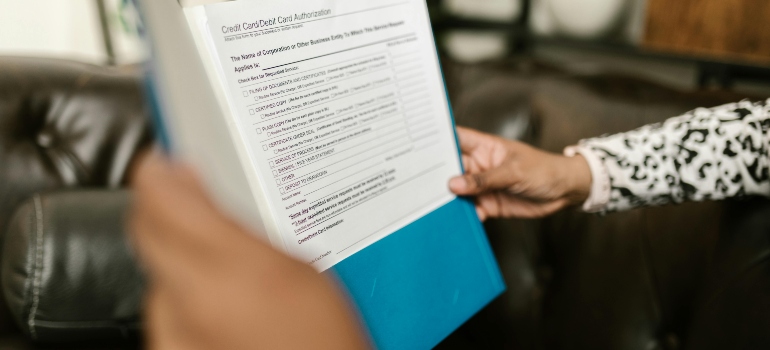Navigating the path to recovery from substance abuse can be tough, especially when it comes to figuring out who foots the bill for court-ordered rehabilitation in West Virginia (WV). If you or a loved one finds themselves in a situation where the court has ordered rehab as part of a legal sentence, understanding how the costs are covered can ease some of the stress and confusion that comes with it. In this blog post, we’ll break down the often-complicated question of who pays for court ordered rehab in WV into easy-to-understand pieces. Whether it’s the government, insurance, or the individuals themselves, knowing what to expect can make the journey toward recovery a little smoother.
What Is Court Ordered Rehab?
When someone does something against the law because of drug or alcohol problems, a court in West Virginia might think it’s better to send them to rehab instead of jail. This is because the court believes that fixing the real issue—like addiction—can help stop them from committing more crimes. So, instead of just punishing them with time behind bars, the court tells them they have to finish a treatment program as part of their punishment. This could happen for different reasons, like getting caught driving drunk, having illegal drugs, or other crimes where drugs or alcohol are a big part of the problem. The goal is to help the person get better, lower the chance they’ll do something wrong again, and make things safer for everyone by dealing with the addiction head-on.

The Legal Basis for Court-Ordered Rehab
The legal basis for court-ordered rehab in West Virginia comes from state laws that give judges the authority to order individuals to undergo treatment as part of their sentence for certain crimes. These laws recognize that substance abuse can lead to criminal behavior and that addressing addiction can help prevent future crimes. One such law is the West Virginia Code § 27-5-7, which allows courts to order substance abuse treatment for individuals convicted of drug-related offenses.
Additionally, federal laws like the Drug Treatment Alternative to Prison (DTAP) Act provide funding and support for states to implement programs that offer treatment as an alternative to incarceration for non-violent drug offenders. These laws emphasize the importance of rehabilitation over punishment and reflect a growing understanding that addiction is a health issue that requires intervention and support rather than simply punishment. So, when a court orders someone to attend rehab in West Virginia, it’s not just a random decision—it’s based on laws that recognize the value of addressing addiction to promote rehabilitation.
Who Pays for Court Ordered Rehab in WV?
When it comes to who pays for court-ordered rehab in West Virginia, several federal and state laws come into play. One important federal law is the Affordable Care Act (ACA), which requires insurance plans to cover substance abuse treatment as an essential health benefit. This means that if the person ordered to rehab has health insurance, their insurance provider might be responsible for covering some or all of the costs.
Additionally, West Virginia’s Medicaid program can also help cover the costs of rehab for eligible individuals who meet certain criteria. On the state level, West Virginia’s Substance Abuse Treatment and Recovery Fund provides financial assistance to individuals who need help paying for substance abuse treatment. However, in some cases, the individual may have to contribute to the cost of their treatment based on their ability to pay.

Types of Court Ordered Rehabs in WV
When a court orders someone to attend rehab in West Virginia, there are different types of programs. These include:
- Inpatient Rehabilitation: In this type of program, individuals stay at a treatment facility for a specific period, usually ranging from a few weeks to several months. During their stay, they receive round-the-clock care and support from trained professionals. Inpatient drug rehab in WV offers a structured environment where individuals can focus solely on their recovery without the distractions or temptations of the outside world.
- Outpatient Rehabilitation: Unlike inpatient rehab, outpatient programs allow individuals to attend treatment sessions during the day and return home at night. This flexibility enables participants to maintain their daily responsibilities, such as work, school, or family obligations.
- Substance Abuse Treatment Programs: Substance abuse treatment WV offers is specifically designed to address addiction to drugs or alcohol. They typically offer a combination of therapeutic interventions, behavioral counseling, medication management (if applicable), and support services to help individuals break free from the cycle of addiction.
- Dual Diagnosis Programs: Dual diagnosis programs cater to individuals with co-occurring substance abuse and mental health disorders. Dual diagnosis treatment West Virginia offers typically includes specialized assessments, individualized treatment plans, and coordinated care.
- Intensive Outpatient Programs (IOP): Intensive outpatient program West Virginia offers provides a higher level of care than standard outpatient treatment, with more frequent sessions and greater emphasis on structured therapy and support. Participants typically attend multiple sessions per week.
- Court-Mandated Therapy: In some cases, courts may order individuals to attend therapy as part of their rehabilitation plan. This could involve individual counseling, group therapy for addiction, or other therapeutic interventions aimed at addressing underlying issues contributing to criminal behavior.
The Cost of Rehabilitation
The cost of rehab centers in West Virginia can vary based on several factors, each of which plays a role in determining the overall expense of treatment. One significant factor is the type of rehab program chosen, such as inpatient or outpatient treatment. Inpatient rehab tends to be more expensive due to the 24/7 supervision, accommodation, meals, and intensive therapeutic services provided. On the other hand, outpatient treatment typically costs less since individuals do not reside at the facility and may only attend therapy sessions a few times per week. Another factor influencing cost is the duration of the program. Longer treatment durations generally result in higher costs due to the extended time spent receiving services and support.

Additionally, the level of care required by the individual can impact the cost of rehab. For example, individuals with severe addiction or co-occurring mental health disorders may require more intensive treatment modalities, such as specialized therapies or medication assisted treatment West Virginia rehabs offer, which can increase overall expenses. Moreover, the location and amenities of the rehab facility also contribute to cost variations. Facilities offering luxurious accommodations, recreational activities, or holistic therapies may charge higher rates compared to more basic or government-funded programs.
On average, the cost of inpatient rehab in West Virginia can range from $5,000 to $30,000 for a 30-day program, while outpatient treatment may cost anywhere from $1,000 to $10,000 for a three-month program. These costs can fluctuate based on the factors mentioned above, making it essential for individuals and their families to carefully consider their treatment needs, financial resources, and available support options when seeking rehab services.
Payment Responsibility Overview
Government assistance can play a big role in helping people in West Virginia get the rehab treatment they need without worrying too much about the cost. State-funded programs are there to help cover the expenses of rehab for people who might not have enough money or insurance to pay for it. These programs get money from the government to offer rehab services for free or at a lower cost. This means if you’re struggling with addiction and need help, these programs can be a real lifesaver.
One key way the government helps is through Medicaid. Medicaid is a health care program for people with low incomes. Therefore, you can search for rehabs in WV that accept Medicaid, including both inpatient and outpatient rehab. If you qualify for Medicaid, you could get your treatment covered, which takes away a big financial worry.
Besides Medicaid, West Virginia has specific funds and grants set aside for substance abuse treatment. These can help pay for rehab services at facilities that have agreed to work with the state and accept its funding. These state-funded rehabs often provide a wide range of services, like detox, counseling, and aftercare support, to help you not only get sober but stay that way.

Insurance Coverage
When it comes to paying for rehab in West Virginia, insurance coverage can also help a lot. This includes private insurance, health maintenance organizations (HMOs), or health plans provided by employers. These types of insurance often cover a part of the cost of rehab, which can include detox, counseling sessions, and sometimes even inpatient stays. However, it’s important to know that not all rehab programs might be covered, or there might be limits on how long you can stay in treatment. Each insurance plan is different, so you need to check what your plan covers specifically.
Even with insurance, there might still be some out-of-pocket expenses. These are costs that your insurance doesn’t cover, and you have to pay them yourself. This could include things like co-pays for each visit to a therapist or a certain percentage of the overall treatment cost. Sometimes, there’s also a deductible, which is an amount you need to pay before your insurance starts covering the costs.
In West Virginia, several common insurance providers can help cover the costs of rehab, including big names like Blue Cross Blue Shield, Aetna, Cigna, UnitedHealthcare, and Humana rehab coverage. To make the most of your insurance benefits, it’s a smart move to search for rehab facilities that accept your insurance provider.
Common Challenges of Covering the Costs of Court Ordered Rehab in WV
Covering the costs of court-ordered rehab in West Virginia can be a big challenge for many individuals, especially if they don’t have insurance or enough money to pay for treatment out of pocket. One common challenge is understanding what financial support options are available and how to access them. To overcome this challenge, individuals can start by reaching out to rehab centers directly to inquire about their payment options and any financial assistance programs they offer. Many rehab facilities have staff dedicated to helping individuals navigate the financial aspect of treatment and can provide valuable guidance and resources.

Additionally, consulting with legal aid services can be beneficial, as they can offer advice on navigating the legal system and accessing available resources for court-ordered rehab. Another helpful resource is the Substance Abuse and Mental Health Services Administration (SAMHSA) in their area. SAMHSA provides information and support for individuals seeking treatment for substance abuse and mental health issues, including assistance in finding affordable treatment options and financial aid programs.
Additionally, individuals can inquire about assistance from local community organizations, churches, or charities that may have funds available to help with treatment costs. Seeking support from family members or loved ones can also be beneficial, as they may be willing to contribute financially or help explore alternative funding options. It’s essential for individuals to be proactive and persistent in their efforts to secure financial assistance for court-ordered rehab.
Understanding Payment for Court Ordered Rehab in WV
When it comes to covering the costs of court ordered rehab in WV, it can feel overwhelming. But, there are avenues available to get the necessary help. Whether it’s through insurance plans, government assistance programs, or seeking support from community organizations, individuals have options. By reaching out, asking questions, and exploring different resources, individuals can find the financial assistance they need to begin their path to recovery. It’s important to remember that seeking help is a sign of strength, and there are people and organizations ready to support individuals in their journey toward a healthier and sober life. So, don’t hesitate to reach out and explore the available options.



